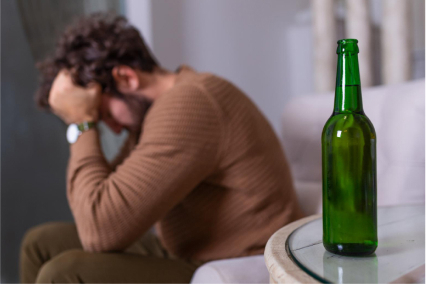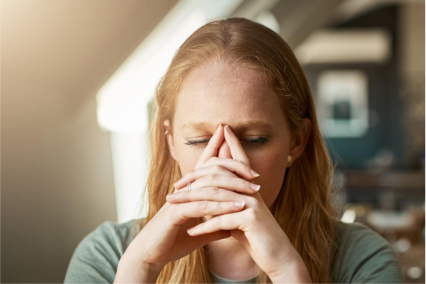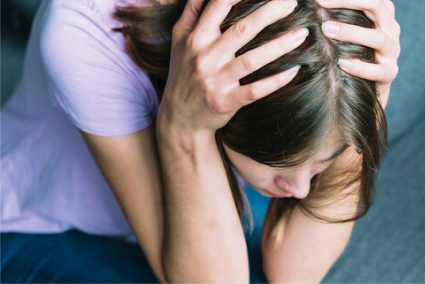Depression is a common mental health condition that can show up in different ways. Some people go through short-term depressive episodes, while others may experience major depression, which involves deeper and longer-lasting feelings of sadness. There’s also dysthymia, a milder but chronic form of depression that can linger for years. Each type affects people differently, which is why it helps to know the differences. By understanding these forms, we can better recognize the signs and find the right ways to manage them. In this discussion, we’ll look at some of the most common triggers of depression, what causes it, and why being aware of these triggers really matters.
It’s also important to remember that many people live with depression, and while it can feel heavy and overwhelming, it doesn’t mean there’s no way forward. With the right treatment—whether that’s medication, therapy, or healthy lifestyle changes—depression can be managed. Support from family, friends, or professionals can also make a huge difference. Most importantly, depression isn’t a personal failure or weakness; it’s a condition that deserves care and attention just like any other health issue. With patience, support, and the right tools, it’s possible to cope, heal, and move toward a more balanced and fulfilling life.
Skip to:
Depression vs. Depressed Mood vs. Dysthymia
Depression (major or clinical depression) is a mood disorder characterized by a persistent feeling of sadness and loss of interest. A diagnosis of depression requires the presence of symptoms for a minimum of two weeks, and it has a profound impact on a person’s ability to function.

Depression affects around 280 million people around the world – approximately 3.8% of the population. 5% of the overall adult population ((4% of men and 6% of women) and 5.7% of people over the age of 60. Some of the most typical symptoms of depression include:
- Continuous sadness or a feeling of emptiness.
- A marked decrease in interest or pleasure in all or most activities.
- Significant weight changes or appetite disturbances.
- Sleep disturbances (either insomnia or excessive sleeping).
- Physical restlessness or slowed movements.
- Fatigue or loss of energy.
- Feelings of worthlessness or excessive guilt.
- Difficulty in thinking, concentrating, or making decisions.
- Recurrent thoughts of death or suicide attempts.
A depressed mood is a different condition. It is a temporary experience of feeling low, and it doesn’t fulfill the diagnostic criteria for clinical depression. It is a common reaction to normal ups and downs in life and doesn’t make a person dysfunctional. People who suffer from this condition feel sad or hopeless, but these feelings are temporary and are often caused by specific life events.
Get Help. Feel Better. Break-Free.
Premier Accredited Dual Diagnosis Mental Health Centers Near You
No matter past therapy challenges, our dedicated therapists provide unwavering support. Our compassionate behavioral health specialists are committed to standing by your side through it all. When you are prepared to take the next step or want guidance on counseling to transform your life, reach out. We will help guide you to the resources you need for support. There is no pressure or obligation. Call our confidential hotline today.
FREE 24/7 Dual Diagnosis Mental Health Therapy HelplineDysthymia (Persistent Depressive Disorder) is a milder chronic form of depression that can greatly impact life quality, and it requires ongoing treatment or support. It lasts for years, and it affects a person’s ability to function in their daily life, though less severely than major depression. People with this disorder have a constant feeling of unhappiness or lack of fulfillment and some other symptoms like fatigue and changes in eating and sleeping patterns.
It is important to distinguish between these conditions in order to understand and address mental health concerns. While they all relate to feelings of sadness, the intensity, duration, and impact on daily life differ significantly. Recognizing depression triggers and these differences ensures that people can search for the most suitable form of support and treatment, contributing to overall well-being and effective mental health management.

Identifying Depression Triggers
So, what triggers depression? It’s important to note that depression triggers are very complex, and they arise from a blend of physiological, psychological, and environmental factors. Elements that could cause depression are events, situations, or circumstances that can lead to the onset or worsening of depressive symptoms. They can vary to a great extent in different individuals.
Here’s a closer look at each type of common depression triggers: physiological, psychological, and environmental.
- Physiological Triggers – Genetic predispositions, chemical imbalances in the brain, and physical health problems that can influence mood and behavior.
- Psychological Triggers – Personal history (such as trauma or abuse) and patterns of negative thinking can significantly impact a person’s susceptibility to depression.
- Environmental Triggers – Life events like the loss of a loved one, financial problems, or significant changes in life circumstances play a big role in triggering depressive episodes.
Identifying common depression triggers is one of the most important steps in the treatment process, but it’s equally important to distinguish depression from other conditions that share similar symptoms. Conditions like bipolar disorder, reactions to severe stress, and trauma can mimic depression, making differential diagnosis vital. A thorough evaluation helps ensure that people receive the correct diagnosis and the most effective treatment plan. This approach not only helps in addressing the current symptoms but also in developing strategies to manage potential depression triggers in the future.

What Can Trigger a Depressive Episode?
Many elements might affect depression differently in each individual, as it is a very complex disorder. By recognizing depression triggers, you may be able to prevent or better manage depressive episodes. Here are some examples of what can trigger a depressive episode:
- Grief and Loss,
- Hormonal Changes and Social Roles,
- Stress and Life Events,
- Illness and Health Issues,
- Substance Use,
- Social and Economic Factors.
Grief and Loss
Some feelings and emotions we normally experience can become depression triggers in some cases. For example, grief can be a depression trigger. While it is a normal response to loss or a sad event, it can evolve into more severe conditions such as complicated grief or prolonged grief disorder. If that happens, the affected person needs additional support to learn how to cope with depression and treat it.
Hormonal Changes and Social Roles
Women are statistically more likely to experience depression. Two main reasons for that are hormonal fluctuations and societal pressures. Hormonal changes across the lifespan (including puberty, menstruation, pregnancy, postpartum, and menopause) can all influence trauma and depression among women. Societal expectations and roles can also place a unique strain on women. That further increases their vulnerability to depressive episodes.
Men are 63% less likely to develop depression than women, as reported by NCBI. Over 10% of pregnant women and women who have just given birth experience depression. Postpartum depression treatment in Florida offers specialized care for women who are struggling with common early pregnancy anxiety or severe postpartum depression.

Stress
Stress is one of the most common depression triggers, affecting individuals whether it arises from daily challenges or significant life changes. Its impact occurs through physical effects on the body and brain, particularly hormonal changes, which are observed in nearly 70% of those experiencing depression. When the adrenal glands, pituitary, and hypothalamus do not regulate mood and emotion properly, the cumulative effect of ongoing stress or sudden negative events can overwhelm your ability to cope, often leading to depressive symptoms.
Cortisol – the stress hormone released during stress – causes physical alterations in brain cells. In fact, stress can alter the size of the hippocampus, the area of the brain that is known to shrink in depressed people. Psychological stress also triggers the immune system. This includes the release of immune system molecules linked to depression. These immune molecules play a role in developing symptoms of mental illness because they are active in brain tissue, especially the hippocampus.

Conquer Emotional Pain. Find Peace, Purpose & Happiness.
Experiencing depression, anxiety, or grappling with mental health challenges? Get compassionate and effective dual diagnosis therapy from our caring counselors in a safe and comfortable environment. Take the first step towards your recovery today.
Hotline (888) 680-7311Life Events
Even positive transitions can be harmful to a person’s emotional state. Since people are habitual beings, even positive life changes may cause stress by forcing them to step outside of their comfort zone. For instance, getting promoted at work may require leaving a comfortable, known position for one that is challenging and new. Being surrounded by strangers and leaving behind familiar people may be part of the new employment. In addition, there can be a significant learning curve and increased stress. Together, these factors cause stress, which can lead to depression even in the case of a favorable situation.
Negative life changes, like getting fired or going through a divorce, can cause an adjustment disorder. That is a type of depression in which depressive symptoms occur as a result of some stressful life change.
People should be ready for and expect the difficulties that come with life transitions. Those who are struggling to cope can think about reaching out to their friends and family or perhaps seeking counseling. They should also be on the lookout for any depression symptoms that can follow these life transitions.

Illness and Health Issues
Physical health problems and the stress of dealing with chronic illness can lead to depression. This relationship is often reciprocal, with depression potentially making the condition worse or recovery more difficult. The psychological impact of living with health issues, coupled with the physical strain of treatment, can significantly affect one’s mental well-being.
Substance Use
Substance use can have a big impact on mental health. Using alcohol, drugs, or other substances can sometimes lead to depression or make existing depression worse. That’s why treatment needs to consider both issues at the same time—addressing depression and substance use together gives people the best chance to recover. With the right support and approach, it’s possible to manage both, improve mental health, and build a healthier, more balanced life.
Social and Economic Factors
Some social and economic factors (lower socioeconomic status, marital status, and early life experiences) are also common depression triggers. They are important risk factors, but they do not directly cause depression. Symptoms of social anxiety and depression need to be properly diagnosed by medical specialists to be treated. Understanding the link between these symptoms and individual vulnerability facilitates creating more targeted and effective interventions.
Comfortable Facilities & Amenities
High-Quality Mental Health Treatment & Behavioral Health Programs
Mental Health Center TourPremier Mental Health Centers. A Private Oasis. Inpatient Mental Health Rehab Programs Vary.
Mental Health Hotline (888) 680-7311History of recovery success excellence, backed by a Team w/ Record of:
15+
Years of Unified Expertise
100s
5-Star Reviews Across Treatment Centers
10K
Recovery Stories
- Comprehensive Dual-Diagnosis Treatment
- Complimentary Family & Alumni Programs
- Comfortable Onsite Clinical & Recreational Therapy
- Coaching, Recovery & Development Events for Alumni
Differential Diagnosis and Treatment
The first step in creating an effective treatment plan is the accurate diagnosis. Differential diagnosis is especially important because some physical conditions like thyroid disorders, vitamin deficiencies, or some other mental health disorders can have symptoms similar to depression. Any other underlying issues need to be identified and treated alongside depression. That comprehensive approach to care provides the correct treatment and addresses all aspects of the person’s health.
The cause of depression is a complex interaction of biological, psychological, and social factors. That doesn’t mean that anyone exposed to these factors will develop depression. Recognizing what triggers depression is important to tailor the treatment to each person. The best approach is usually a combination of medication, psychotherapy, and some lifestyle changes. This approach supports recovery best and improves the affected person’s quality of life.
Treatment Options and Support
As mentioned, depression treatment often involves a mix of medication, therapy, and adjustments to lifestyle. The medications most often prescribed are antidepressants that balance the brain’s chemicals, while therapy sessions provide support for dealing with emotional and behavioral issues. Some lifestyle changes like maintaining a healthy diet and exercising regularly are also important in this comprehensive approach. If you are looking for quality support, search for mental health clinics Florida doctors recommend and the ones that offer a range of services tailored to individual needs. This is a way to ensure that each person receives the care that best suits their situation.

For people who are looking for options beyond traditional medicine, there are some alternative treatments that have gained popularity recently. For example, acupuncture for depression can be beneficial in some cases. Acupuncture stimulates the body’s natural healing process and balances energy pathways. It can also provide relief for some people. While they cannot substitute professional medical advice, alternative treatments can be a part of a holistic approach to managing depression.
When it comes to finding comprehensive depression treatment in Florida, there are many options and resources. We Level Up Tamarac FL provides an integrated approach to treatment, combining medical, psychological, and supportive therapies tailored to your needs. Recognizing the importance of professional help is the first step toward recovery. With the right support and treatment plan, managing depression becomes a more comfortable process, leading to improved mental health and well-being.
Best-in-class, Accredited, 5-Star Network, Effective Mental Health Dual Diagnosis Therapy. Comprehensive Integrated Inpatient Rehab with Free Post Discharge Therapy Planning.
CALL (888) 680-7311End Emotional Turmoil Rollercoaster. Achieve Stability & Joy Through Recovery Treatment. Initiate Mental Health Counseling Today. Receive Free No-obligation Guidance by Behaviroal Health Therapists Specialy Trained for Mental Health Recovery.
Self-Care Advice to Deal With Depression
Taking care of yourself is essential when managing depression and enhancing your overall well-being. It’s important to remember that you are not alone—many people have faced similar struggles and have found ways to cope and heal. Connecting with others who understand what you’re going through can make a significant difference, so consider joining a support group or talking with a trusted friend or family member. Support networks provide a safe space to share feelings, gain perspective, and feel validated.
In addition to seeking support, daily self-care practices can help stabilize mood and improve mental health. Try incorporating small, achievable habits into your routine, such as maintaining a consistent sleep schedule, eating balanced meals, and engaging in gentle physical activity like walking or stretching. Mindfulness practices, meditation, or journaling can also help you process emotions and reduce stress. Remember to be kind to yourself—celebrate small victories and avoid self-criticism.
- Do something that you used to enjoy.
- Keep in touch with friends and family.
- Exercise regularly.
- Prioritize sleep and rest.
- Minimize alcohol consumption and drug use.
- Talk about your feelings to someone you can trust.
- See a healthcare professional.
Dealing With Common Depression Triggers
Depression is a serious issue, and in order to deal with it, you need to learn how to recognize its triggers. Knowing when to seek help can make a significant difference in your recovery. If you’re experiencing symptoms of depression, you need to consider seeking a professional evaluation. Resources like We Level Up Tamarac FL are available to offer support and treatment options tailored to your needs. Remember, getting informed about common depression triggers is a vital step in moving towards a healthier life. Don’t hesitate to reach out for help when you need it.
Improve Your Life
Embark on a free call to our behavioral health program advisors. Explore our dual-diagnosis mental health rehab programs. Each We Level Up treatment center network facility specializes in specific recovery counseling. Call to feel & get better.
- Individualized Care
- Attentive Accountable Team
- First-class Amenities
- Licensed & Accredited
- Recognized 5-Star Network
We’ll Call You
Search We Level Up Tamarac FL for Depression Triggers Topics & Resources
Sources:
Abate, K.H. (2013). Gender Disparity in Prevalence of Depression Among Patient Population: A Systematic Review. Ethiopian Journal of Health Sciences, [online] 23(3), pp.283–288. Available at: https://www.ncbi.nlm.nih.gov/pmc/articles/PMC3847538/.
Albert, P. (2015). Why is depression more prevalent in women? Journal of Psychiatry & Neuroscience, [online] 40(4), pp.219–221. doi:https://doi.org/10.1503/jpn.150205.
National institute of Mental Health (2023). Depression. [online] National Institute of Mental Health. Available at: https://www.nimh.nih.gov/health/topics/depression.
World Health Organization (2023). Depressive Disorder (depression). [online] World Health Organization. Available at: https://www.who.int/news-room/fact-sheets/detail/depression.





